第44章
XXI. But that sinne which by the Law of nature is Treason, is a Transgression of the naturall, not the civill Law. For since our obligation to civill obedience, by vertue whereof the civill Lawes are valid, is before all civill Law, and the sin of Treason is naturally nothing else but the breach of that obligation; it followes that by the sin of Treason, that Law is broken which preceded the civill Law, to wit, the naturall, which forbids us to violate Covenants, and betrothed faith. But if some Soveraign Prince should set forth a Law on this manner, Thou shalt not rebell, he would effect just nothing: For except Subjects were before obliged to obedience, that is to say, not to rebell, all Law is of no force; now the obligation which obligeth to what we were before obliged to, is superfluous.
XXII. Hence it followes, that Rebels, Traytors, and all others convicted of Treason, are punisht not by civill, but naturall Right; that is to say, not as civill Subjects, but as Enemies to the Government, not by the Right of Soveraignty, and Dominion, but by the Right of Warre.
XXIII. There are some who think that those acts which are done against the Law, when the punishment is determined by the Law it selfe, are expiated, if the punished willingly undergoe the punishment; and that they are not guilty before God of breaking the naturall Law (although by breaking the civill Lawes, we break the naturall too, which command us to keep the civill) who have suffered the punishment which the Law required; as if by the Law, the fact were not prohibited, but a punishment were set instead of a price, whereby a licence might be bought of doing what the Law forbids. By the same reason they might inferre too, that no transgression of the Law were a sin, but that every man might enjoy the liberty which he hath bought by his own perill.
But we must know that the words of the Law may be understood in a twofold sense, the one as containing two parts (as hath been declared above in the seventh Art.) namely that of absolutely prohibiting, as, Thou shalt not doe this; and revenging, as, he that doth this, shall be punisht; The other, as containing a condition, for example, Thou shalt not doe this thing, unlesse thou wilt suffer punishment; and thus, the Law forbids not simply, but conditionally. If it be understood in the first sense, he that doth it, sins, because he doth what the Law forbids to be done; if in the second, he sins not, because he cannot be said to doe what is forbidden him, that performs the condition; For in the first sense, all men are forbidden to doe it; in the second, they only who keep themselves from the punishment. In the first sense, the vindicative part of the Law obligeth not the guilty, but the Magistrate to require punishment; in the second, he himselfe that owes the punishment is obliged to exact it, to the payment whereof, if it be capitall, or otherwise grievous, he cannot be obliged. But in what sense the Law is to be taken, depends on the will of him who hath the Soveraignty. When there is therefore any doubt of the meaning of the Law, since we are sure they sinne not who doe it not, it will be sin if we doe it, howsoever the Law may afterward be explained; for so to doe that which a man doubts whether it be a sin or not, when he hath freedome to forbear it, is a contempt of the Lawes, and therefore by the 28. Art. of the third Chapter, a sin against the Law of nature. Vain therefore is that same distinction of obedience into Active and Passive, as if that could be expiated by penalties constituted by humane decrees, which is a sinne against the Law of nature, which is the Law of God; or as though they sinned not, who sinne at their own perill.